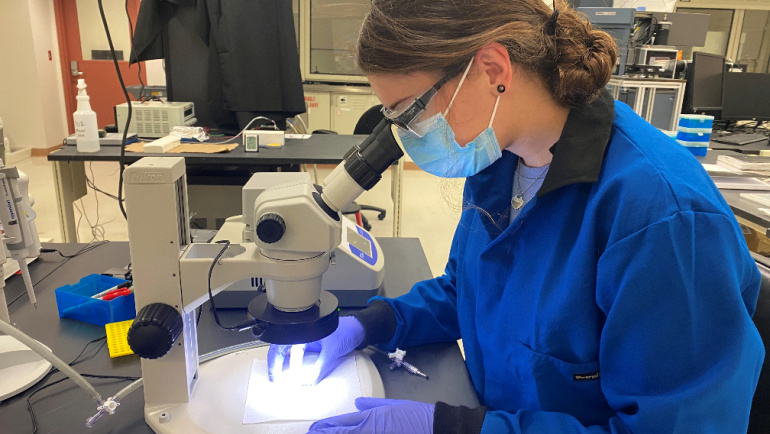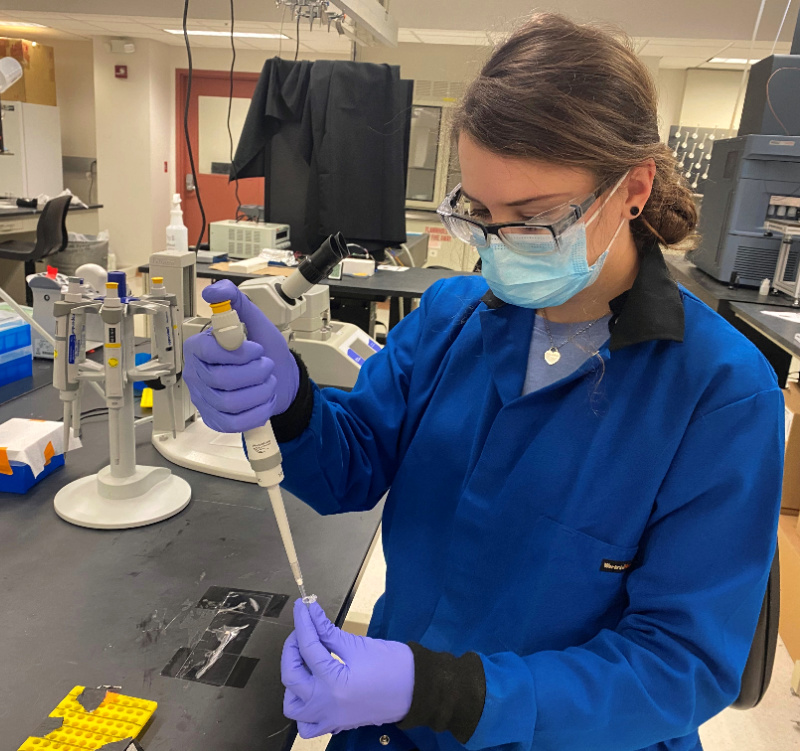
What good is going through the rigors of scientific research if no one outside the realm can comprehend it?
That’s what Bailey McCarthy Riley — a fifth-year Wayne State University analytical chemistry student and Department of Chemistry Ph.D. candidate — found herself asking.
“It’s a big challenge in science communication right now,” McCarthy Riley said. “We dedicate ourselves to our fields, spend all this time working in them and run rigorous experiments. Then the results are written in this very technical language and put into journals, only to be viewed by people who are experts in the field. It's very niche, right?”
While her research in microfluidic device development is quite technical and engineering driven (think microchips that can detect diseases such as cancer at earlier stages), she’s always had an interest in policy. “But I never realized there was an opportunity to merge science and policy, research with legislation, until recently,” she said.
It was during an American Association for the Advancement of Science webinar that McCarthy Riley found the National Science Policy Network’s bootcamp. After applying, she was accepted along with just 12 others from across the United States and began working with graduate students whose studies ranged from neuroscience to genetics and physics to immunology and more.

Although the five-week bootcamp was oriented for graduate students who already had an introduction to policy and political science, it also provided guidance on how scientists can translate broader scientific writings to the layperson. One of the first things McCarthy Riley learned was how to bring these bigger findings and ideas to the public — and even more importantly, how to implement policy from the science.
For the first time in her studies, McCarthy Riley was asked to author a policy memo. She chose to write about preventative waste management recommendations on the notorious “green ooze” contamination incident on I-696 in Madison Heights, Michigan. The toxic "green ooze" contained harmful hexavalent chromium, nonstick PFAS compounds and other contaminants. Environmental regulators traced it to Electro-Plating Services, a business just up the hill from the freeway in Madison Heights.
“I became really interested in the problem and how we, as citizens, can solve it,” McCarthy Riley said. “I had to do a deep dive and figure out what were the issues that resulted in it happening. There were opportunities where recommendations could have been made along the way. It was a great experience to take me from a graduate student to someone who is engaging in the issue.”
Currently, McCarthy Riley is working on speaking with Michigan legislators to see if there is an interest in solving the issue. She said the National Science Policy Network bootcamp has helped her shift gears, in terms of career opportunities and possibilities. It led to a remote internship this semester to translate scientific research for Annual Reviews, a nonprofit journal publisher of 51 review series in specific disciplines in science and social science based in Palo Alto, California.
“They’re well respected in the academic community for their broad scope of research topics that they narrow down into individual review articles,” said McCarthy Riley, who expects to graduate in February 2022. “One of the biggest challenges is scientists address a variety of questions, but I don't think they always get accurately represented every time to, for example, the legislator. We've got this vast amount of research, but we don't necessarily always take the important points from it to them in a way that’s readily understandable.
"I believe the field of science policy will only continue to grow, and more scientists will want to engage with legislators and represent their work in a way that can further engage citizens.”